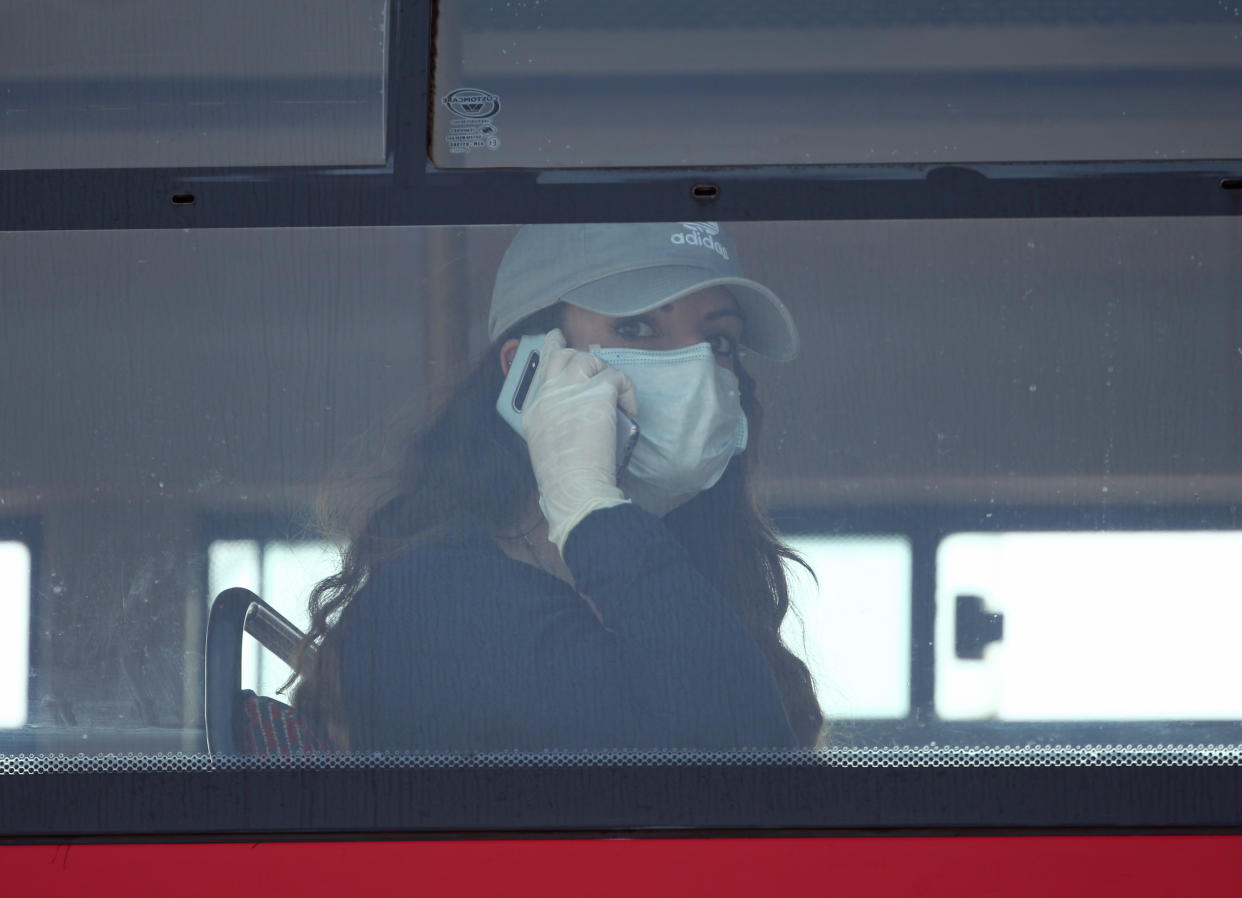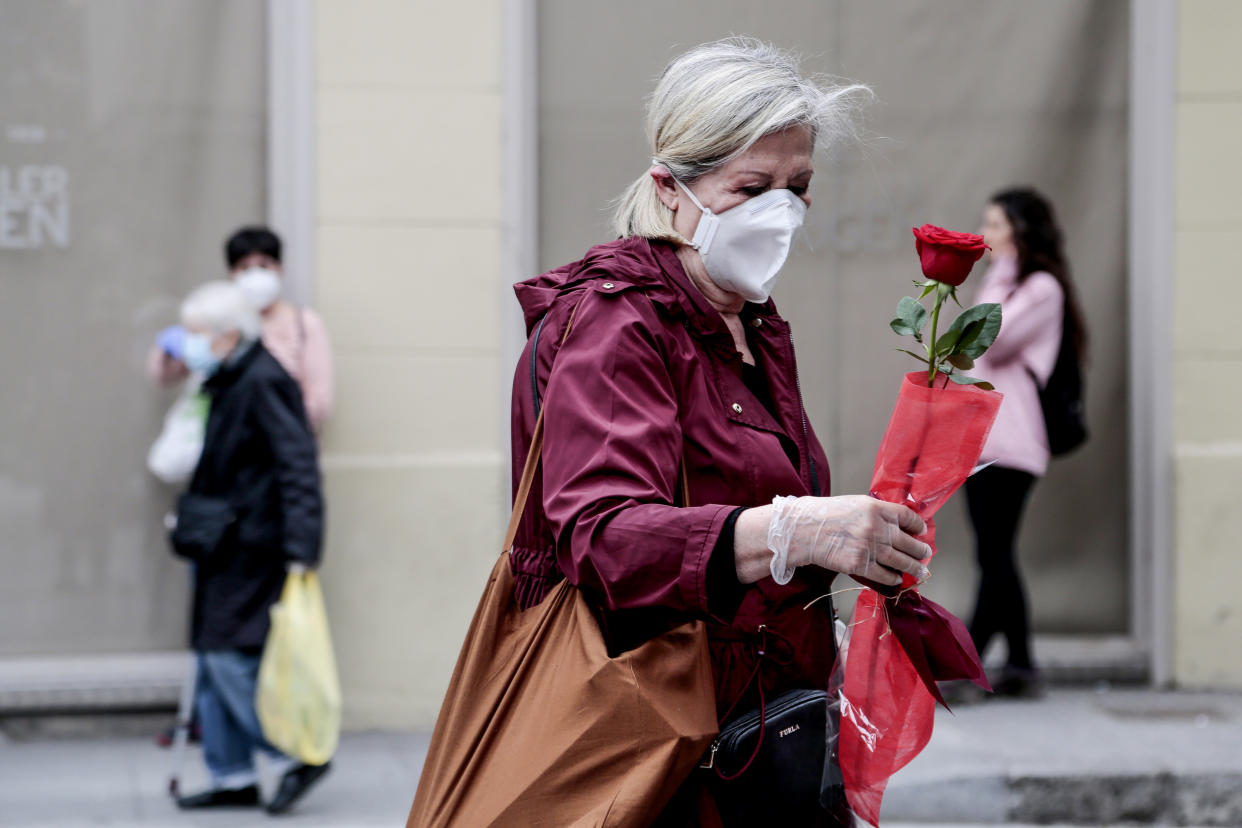Coronavirus: Scientists identify eight human traits that may prevent officials getting a handle on the pandemic

Scientists have identified eight “human traits” that may hinder our ability to get a handle on the coronavirus outbreak.
The UK, like much of the world, is on lockdown.
Draconian measures mean Britons can only leave their home for “very limited purposes”, like shopping for essentials.
A team from Princeton University worry behavioural pitfalls like shame and fear of the unknown may cause people to break the restrictions put in place to overcome the pandemic.
Early research suggests the coronavirus is mild in four out of five cases, however, it can trigger a respiratory disease called COVID-19.

Latest coronavirus news, updates and advice
Live: Follow all the latest updates from the UK and around the world
Fact-checker: The number of COVID-19 cases in your local area
Explained: Symptoms, latest advice and how it compares to the flu
The scientists have outlined the following pitfalls, “reported by psychological science”, and potential solutions in an editorial piece for The Lancet:
Fear of the unknown: The initial panic of the ominous coronavirus may spur people to comply with restrictions. Once this calms down, adherence could start fading. The scientists therefore recommend officials repeatedly remind the public what is expected of them
Shame: People may be ashamed if they lapse into behaviours that put them at risk, like touching their face with unwashed hands. Officials could use celebrities who have overcome the coronavirus, like Tom Hanks, as a way of “mitigating stigma”. People should be reassured lapses are natural, so long as they then return to “best behaviours”
Neglecting other aspects of health: The coronavirus can feel all-consuming. Tunnel vision may cause people to neglect sleep, exercise or healthy eating habits. Doctors should advise patients to continue looking after themselves during lockdown
Ignoring “invisible mental diseases”: The coronavirus has a test that leads to a diagnosis. Social isolation, however, could trigger “invisible” issues like depression and anxiety. The scientists want to see increased mental-health support, despite reduced access to in-person services
Frustration: It will take time before the fruits of our lockdown labour lead to downward death rates. Officials should advise against people reading too much into sudden spikes or drops in the data to avoid “random volatility being mistaken for a real trend”
Desire to return to the status quo: Life may feel unsettling at the moment, but the scientists have stressed it is an opportunity to refocus. Down the line, officials could learn lessons from the pandemic to reassess how healthcare systems operate
Ingrained norms: People are used to greeting loved ones, caring for grandparents and dining with friends. With this not being easy to change, the scientists want to see “slogans and images” reiterating how we should be social distancing. Medics could spread this information as “role models” to their patients, they added. The World Health Organization previously recommended people greet with a bow
Hindsight bias: Once the pandemic has passed, authorities may come under fire for over or under reacting. While some criticism could be “correct and justified”, the ever-evolving outbreak can make it difficult to judge the best way to act at the time. “A collective mentality that we are all in this together may prove difficult but highly useful,” wrote the scientists
“Following the strong initial reactions to such a challenging and difficult time, awareness of judgmental pitfalls might help maintain things on the right path,” said co-author Professor Eldar Shafir.
What is the coronavirus?
The coronavirus is one of seven strains of a virus class that are known to infect humans.
Others trigger everything from the common cold to severe acute respiratory syndrome (Sars), which killed 774 people during its 2002/3 outbreak.
Since the coronavirus outbreak was identified, more than 2.6 million cases have been confirmed worldwide, according to Johns Hopkins University.
Of these cases, over 721,500 are known to have “recovered”.
Globally, the death toll has exceeded 184,600.
The coronavirus mainly spreads face to face via infected droplets expelled in a cough or sneeze.
There is also evidence it may be transmitted in faeces and survive on surfaces.
Symptoms include fever, a cough and slight breathlessness.
The coronavirus has no “set” treatment, with most patients naturally fighting off the infection.
Those requiring hospitalisation are given “supportive care”, like ventilation, while their immune system gets to work.
Officials urge people to ward off the coronavirus by washing their hands regularly and maintaining social distancing.




